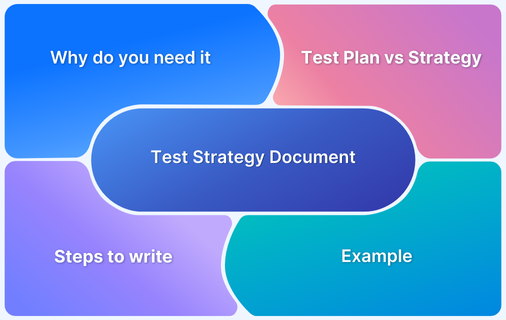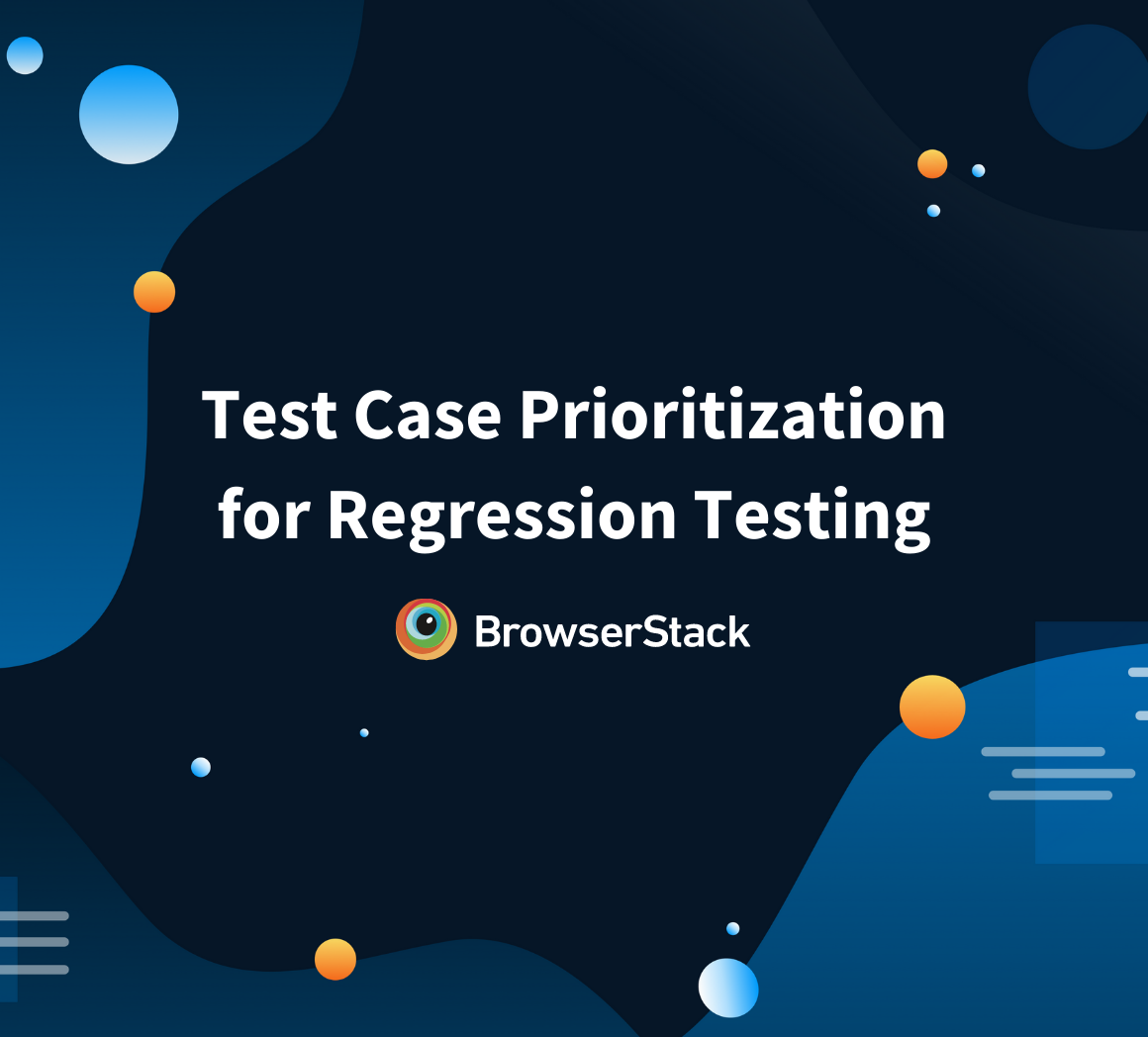Automated Test Case Generation uses advanced algorithms and AI to automatically create test cases based on application requirements or code. This process accelerates testing, enhances coverage, and reduces the need for manual intervention.
Overview
What Are Automated Test Case Generation Tools?
Automated Test Case Generation tools automatically create test cases based on application requirements, user stories, or existing code, enabling faster and more efficient test execution.
Importance of Automated Test Case Generation Tools
- Automates the tedious process of manually writing test cases.
- Saves valuable time and resources by reducing the need for manual intervention.
- Improves the consistency and quality of tests across large projects.
- Supports the continuous integration and delivery (CI/CD) pipeline for faster feedback.
This article explains the benefits of Automated Test Case Generation provides a list of the top tools to consider for optimizing your testing processes.
What Is Automated Test Case Generation?
Automated Test Case Generation is the process of automatically creating test cases for software applications using tools and algorithms.
Instead of manual, error-prone test case writing, automated systems generate tests based on predefined criteria, streamlining the process, improving efficiency, and ensuring comprehensive test coverage.
Key aspects of Automated Test Case Generation include:
- Automated Test Creation: Tools generate test cases based on application requirements.
- Reduced Manual Effort: Minimizes manual test writing, speeding up testing.
- Increased Coverage: Ensures more scenarios, including edge cases, are tested.
Importance of Automated Test Case Generation
Automated Test Case Generation is crucial in modern software development and testing. It significantly enhances the quality of applications and accelerates the testing cycle.
Here’s why Automated Test Case Generation is vital:
- Increases Efficiency: Speeds up test case creation for faster releases.
- Ensures Consistency: Eliminates human error for accurate results.
- Enhances Scalability: Quickly generates tests for large-scale applications.
- Reduces Costs: Lowers testing costs by minimizing manual labor.
Also Read: How to reduce Testing Cycle Time?
How Does Automated Test Case Generation Work?
Automated Test Case Generation leverages tools and algorithms to automatically create test cases based on application requirements, user stories, or code.
These tools analyze the system’s functionality and generate various test scenarios, which are then executed to validate software behavior.
This process eliminates manual test creation, ensuring faster and more comprehensive testing.
Key Techniques in Automated Test Case Generation
Here are the key techniques of automated test case generation:
- Model-Based Testing: Automatically generates tests by creating models of the application’s behavior and developing test cases from these models.
- Requirement-Based Test Generation: Creates test cases directly from requirements or user stories, ensuring full coverage of the specified functionality.
- Data-Driven Testing: Generates tests by varying input data to check how the application responds to different data sets, improving test coverage.
- Mutation Testing introduces small changes (mutations) in the code to verify whether the tests can detect errors, ensuring robust test cases.
Learn More: Model Based Testing Tools
What Are Automated Test Case Generation Tools?
Automated Test Case Generation tools automatically create test cases based on application requirements using algorithms and predefined logic. These tools eliminate manual test writing, saving time, reducing errors, and ensuring comprehensive test coverage.
Key features include:
- Requirement-Based Test Generation: Automatically generates test cases from application requirements.
- Algorithmic Test Creation: Uses algorithms like boundary value analysis for diverse test scenarios.
- CI/CD Integration: Seamlessly integrates with CI/CD pipelines for continuous testing.
- Framework Support: Compatible with popular testing frameworks like Selenium, JUnit, and TestNG.
These tools enhance scalability and efficiency, driving faster, more reliable software testing.
Top Automated Test Case Generation Tools
Automated Test Case Generation tools are designed to streamline the process of creating test cases, allowing teams to generate and execute tests based on predefined requirements automatically.
Top 20 Automated Test Case Generation Tools
- BrowserStack Test Management
- Selenium
- Appium
- Cucumber
- Zephyr
- Azure Test Plans
- Qodo (formerly Codium)
- Maveryx
- TestCraft
- Ranorex Studio
- Testim
- Perfecto
- QAComplete
- Rainforest QA
- EvoSuite
- Diffblue Cover
- SikuliX
- Pex
- RPA Express
- QA Wolf
Here is a detailed description of each of these tools:
1. BrowserStack Test Management
BrowserStack Test Management simplifies the test creation and execution process using AI-powered agents. Its intuitive interface enhances productivity and provides deep insights with customizable dashboards.
Key Benefits:
- AI-Powered Test Creation: Instantly generate test cases from PRDs and user stories, saving time on manual analysis.
- Faster Execution: Auto-fill test steps and preconditions for comprehensive tests with minimal effort.
- Enhanced Productivity: Streamline workflows, perform bulk edits, and reduce clicks with a user-friendly interface.
Why Choose BrowserStack Test Management?
With AI-driven features, BrowserStack Test Management enables faster test creation, improved coverage, and actionable insights, making it the ideal choice for teams seeking to optimize their testing workflows.
2. Selenium
Selenium is a widely-used open-source tool for automating web applications across multiple browsers. It supports automatic test case generation through script-based approaches.
Key Features:
- Cross Browser Testing: Supports Chrome, Firefox, Safari, and more.
- Flexible Script-Based Testing: Write tests in Java, Python, or other languages.
- Open-Source: Free to use and highly customizable.
Pros:
- Broad browser support
- Highly flexible with multiple language options
Cons:
- Requires setup and maintenance
- Limited for non-web applications
Verdict: Best for teams looking for a flexible, open-source solution for web application test automation.
3. Appium
Appium is an open-source tool for automating mobile application tests. It allows teams to generate automated tests across both Android and iOS platforms using various programming languages.
Key Features:
- Cross Platform Testing: Supports Android and iOS applications.
- Multi-Language Support: Works with Java, Python, JavaScript, and more.
- Open-Source: Completely free to use with an active community.
Pros:
- Open-source with no licensing fees
- Flexible for different languages and testing frameworks
Cons:
- Requires significant setup and maintenance
- Slower execution than some alternatives
Verdict: Ideal for teams with a mobile testing focus that require flexibility in programming languages.
4. Cucumber
Cucumber is a tool that uses Behavior-Driven Development (BDD) to generate test cases based on natural language specifications.
Key Features:
- BDD Support: Generates tests from user stories written in plain language.
- Multi-Language Support: Works with Java, Ruby, and JavaScript.
- Collaboration-Friendly: Promotes collaboration between developers, testers, and business analysts.
Pros:
- Easy for non-developers to understand and use
- Strong collaboration features
Cons:
- Requires familiarity with BDD concepts
- Limited flexibility for highly complex tests
Verdict: Ideal for teams implementing BDD and focused on collaboration between technical and non-technical stakeholders.
Also Read: How to achieve Advanced BDD Test Automation
5. Zephyr
Zephyr is a leading test management tool that integrates with popular test automation frameworks to provide streamlined test case generation and execution for web, mobile, and API testing.
Key Features:
- Automated Test Case Generation: Automatically generate test cases from predefined requirements.
- Real-Time Reporting: Provides real-time insights into test execution results.
- CI/CD Integration: Easily integrates into existing CI/CD workflows.
Pros:
- Easy integration with major test automation tools
- Real-time updates and collaboration features
Cons:
- Some advanced features are limited in lower-tier plans
- Complex for new users without proper training
Verdict: Ideal for teams looking for a test management tool that integrates seamlessly with automation tools and offers comprehensive reporting.
6. Azure Test Plans
Azure Test Plans, part of Microsoft’s Azure DevOps suite, helps teams manage test case generation and execution with strong integration capabilities for continuous integration pipelines.
Key Features:
- Test Case Management: Easily generate, track, and manage test cases within the Azure environment.
- Automated Test Execution: Supports automation for regression and functional testing.
- Integration with CI/CD: Works seamlessly with Azure DevOps CI/CD pipelines for continuous testing.
Pros:
- Comprehensive integration with Azure DevOps
- Scalable for enterprise use
Cons:
- Requires familiarity with Azure DevOps
- Not as feature-rich for non-Microsoft environments
Verdict: Best suited for teams already using Azure DevOps looking for a unified platform for test case generation and management.
7. Qodo (formerly Codium)
Qodo (formerly Codium) is an intelligent automated testing solution that helps developers generate automated test cases directly from their code, significantly improving testing speed and efficiency.
Key Features:
- Code-Based Test Generation: Automatically generates unit and integration tests directly from code.
- Real-Time Feedback: Provides instant feedback on code coverage and test results.
- CI/CD Integration: Easily integrates with popular CI/CD systems for continuous test execution.
Pros:
- Seamless integration with codebases
- AI-powered test case generation for faster test creation
Cons:
- Focused on unit and integration tests, less so on UI testing
- Can be complex to configure initially
Verdict: Great for developers looking for an AI-driven tool to automatically generate tests from their code and integrate seamlessly into CI/CD pipelines.
Also Read: Fundamentals of Writing Good Test Cases
8. Maveryx
Maveryx provides an automation testing platform that supports both script-based and scriptless test generation for web, mobile, and desktop applications. It offers an intelligent way to generate test cases automatically.
Key Features:
- Scriptless Test Creation: No coding required to generate and automate test cases.
- Cross-Platform Testing: Supports testing across web, mobile, and desktop platforms.
- Data-Driven Testing: Easily integrate data-driven tests for more comprehensive coverage.
Pros:
- User-friendly, scriptless interface
- Supports a wide range of platforms
Cons:
- May lack flexibility for advanced testing scenarios
- Can be costly for smaller teams
Verdict: Perfect for teams needing an easy-to-use test case generation tool that works across multiple platforms.
9. TestCraft
TestCraft is a visual, codeless test automation platform that enables teams to create, execute, and maintain automated test cases for web applications using a visual interface.
Key Features:
- Visual Test Creation: Design tests using drag-and-drop functionality.
- AI-Powered Test Maintenance: Automatically updates tests when the UI changes.
- CI/CD Integration: Seamlessly integrates into your existing CI/CD pipeline.
Pros:
- Codeless automation for non-technical users
- AI-driven test maintenance
Cons:
- Limited flexibility for highly complex scenarios
- Pricing may be prohibitive for smaller teams
Verdict: Ideal for teams looking for a no-code solution with automated test maintenance and cross-team collaboration.
10. Ranorex Studio
Ranorex Studio offers comprehensive web, mobile, and desktop application test automation. It provides script-based and scriptless test creation options to suit different user needs.
Key Features:
- Cross-Platform Support: Works across web, mobile, and desktop applications.
- Scriptless Test Creation: Allows for easy test creation without writing code.
- Full CI/CD Integration: Easily integrates with Jenkins and other CI/CD tools.
Pros:
- Flexible for both technical and non-technical users
- Cross-platform testing support
Cons:
- Premium pricing
- Requires time for advanced training
Verdict: A great choice for enterprises needing a powerful, flexible solution that supports diverse testing platforms.
11. Testim
Testim is a smart test automation tool that uses machine learning to generate and maintain automated test cases for web applications, reducing test maintenance time.
Key Features:
- AI-Powered Test Creation: Automatically generates and adapts tests with machine learning.
- Easy Maintenance: Automatically updates tests when the UI changes.
- CI/CD Integration: Easily integrates with your CI/CD pipeline.
Pros:
- Reduces test maintenance effort
- Easy integration with CI/CD tools
Cons:
- Limited to web applications
- Pricing may be high for small teams
Verdict: Perfect for teams looking for a smart, AI-powered test generation tool to simplify test maintenance.
12. Perfecto
Perfecto provides automated test case generation for both mobile and web applications, offering real-device testing in the cloud for more accurate results.
Key Features:
- Cloud-Based Testing: Run tests on real devices in the cloud.
- Cross-Device and Cross-Browser Testing: Supports testing across a wide range of devices and browsers.
- Advanced Analytics: Provides detailed reports and test performance insights.
Pros:
- Real device testing
- Scalable cloud-based solution
Cons:
- Pricing can be high for smaller teams
- Some advanced features are available only in higher-tier plans
Verdict: Best for enterprises needing real-device testing and cloud scalability.
13. QAComplete
QAComplete is a comprehensive test management tool that also supports automated test case generation, providing flexibility in managing both manual and automated tests.
Key Features:
- Test Case Management: Manage both manual and automated test cases.
- Integration with CI/CD: Integrates with automation frameworks like Selenium, Jenkins, and more.
- Real-Time Reporting: Tracks and reports progress and test results.
Pros:
- Flexible for mixed testing environments
- Comprehensive reporting and analytics
Cons:
- Premium pricing for enterprise features
- Requires time to configure integrations
Verdict: A robust test management tool for teams requiring both manual and automated test case management.
14. Rainforest QA
Rainforest QA offers a no-code testing platform for generating automated test cases. This enables teams to test functional and regression scenarios without writing any code.
Key Features:
- No-Code Testing: Create automated tests with no coding required.
- Cloud-Based: Test execution happens in the cloud.
- Cross-Device Testing: Supports testing across multiple devices and browsers.
Pros:
- Simple and intuitive interface
- Scalable for growing teams
Cons:
- Limited for complex test scenarios
- Pricing can be expensive for smaller teams
Verdict: Ideal for teams needing a no-code solution that is easy to use and scales across devices.
15. EvoSuite
EvoSuite is a test case generation tool that uses genetic algorithms to generate high-quality unit tests for Java applications automatically.
Key Features:
- Automated Unit Test Generation: Uses genetic algorithms to create unit tests.
- Code Coverage Optimization: Maximizes code coverage with minimal tests.
- Integration with Build Tools: Works with Maven, Gradle, and other build systems.
Pros:
- High-quality unit test generation
- Maximizes code coverage with fewer tests
Cons:
- Limited to Java applications
- Requires setup and configuration for optimal use
Verdict: Perfect for Java development teams focused on high-quality unit test generation.
Also Read: Use Case vs Test Case: Core Differences
16. Diffblue Cover
Diffblue Cover is an AI-powered tool designed to automatically generate unit tests for Java applications, using machine learning to improve the quality and coverage of tests.
Key Features:
- AI-Powered Unit Test Generation: Uses machine learning to generate tests automatically.
- Comprehensive Code Coverage: Generates tests that cover all code paths.
- CI/CD Integration: Easily integrates with CI/CD tools.
Pros:
- AI-driven test creation
- High code coverage with minimal tests
Cons:
- Limited to Java applications
- Requires CI/CD setup for full benefits
Verdict: Best suited for Java teams seeking an AI-powered solution for unit test generation.
17. SikuliX
SikuliX is an open-source tool that automates graphical user interfaces (GUIs) using image recognition to generate test cases based on visual elements.
Key Features:
- Image-Based Automation: Automates GUIs using image recognition.
- Cross-Platform: Supports Windows, macOS, and Linux.
- Open-Source: Free and customizable.
Pros:
- Open-source and flexible
- Simple for basic GUI testing
Cons:
- Limited support for complex applications
- Slower execution compared to other tools
Verdict: Ideal for teams looking for an open-source, visual test automation tool.
18. Pex
Pex is a tool for generating unit tests for .NET applications. It analyzes the source code and generates tests that increase code coverage and reliability.
Key Features:
- Automatic Unit Test Generation: Generates unit tests based on the source code.
- Code Coverage Insights: Identifies untested code paths.
- Integration with Visual Studio: Works seamlessly with Visual Studio.
Pros:
- Generates high-quality unit tests
- Excellent integration with Visual Studio
Cons:
- Limited to .NET applications
- Requires Visual Studio for full functionality
Verdict: Ideal for .NET teams looking to automate unit test generation and improve code coverage.
19. RPA Express
RPA Express by WorkFusion integrates Robotic Process Automation (RPA) with test automation capabilities, including automated workflow test case generation.
Key Features:
- Automated Test Generation: Generates tests based on workflows.
- End-to-End Automation: Supports both test automation and business process automation.
- Scalable: Easily scales to meet enterprise demands.
Pros:
- Integrates RPA with test automation
- Suitable for large enterprise environments
Cons:
- Requires significant learning curve
- Not focused solely on test automation
Verdict: Great for teams looking for test automation integrated with business process automation.
20. QA Wolf
QA Wolf is a test automation platform that provides automated test case generation for web applications, utilizing a user-friendly, scriptless interface for fast test creation.
Key Features:
- Scriptless Test Generation: Automate web tests without coding.
- Cross-Browser Testing: Supports testing on multiple browsers.
- CI/CD Integration: Integrates easily with CI/CD pipelines for continuous testing.
Pros:
- No-code test creation
- Seamless CI/CD integration
Cons:
- Limited for highly complex test cases
- Smaller tool ecosystem compared to others
Verdict: Ideal for teams looking for an easy-to-use, no-code test automation solution with fast test generation
Choosing the Right Automated Test Case Generation Tool
Selecting the right Automated Test Case Generation tool depends on your team’s needs, the complexity of the application, and integration requirements.
Key considerations include:
- Ease of Use: Choose a tool with an intuitive, user-friendly interface.
- Integration with CI/CD: Ensure seamless integration for continuous testing.
- Cross-Platform Testing: Opt for tools supporting multiple browsers and devices.
- AI-Powered Automation: AI-driven features speed up test creation and increase accuracy.
With AI-driven automation, seamless CI/CD integration, and broad cross-platform support, BrowserStack Test Management speeds up test creation and boosts productivity.
How to Automate Test Case Generation Using BrowserStack
Automating test case generation with BrowserStack is seamless and powered by AI-driven agents. Here’s how you can get started:
- Integrate with Your CI/CD Pipeline: Easily connect BrowserStack to your CI/CD tools like Jenkins or GitHub for continuous test automation, making testing a part of your development workflow.
- Auto-Generate Test Cases: Use AI agents to instantly generate test cases from PRDs, user stories, or existing code, eliminating hours of manual test creation.
- Auto-Fill Test Steps & Preconditions: BrowserStack’s AI agents will auto-fill test steps, preconditions, and expected results, ensuring comprehensive and accurate test cases.
- Convert Test Cases to Automated Scripts: Convert your manual test cases into low-code automated scripts for easy execution, which will help scale your testing efforts.
- Run Cross-Browser and Cross-Device Tests: Execute your generated test cases on real browsers and devices hosted on BrowserStack’s cloud for accurate, cross-platform coverage.
- Monitor Results & Gain Insights: Use customizable dashboards to get actionable insights from your tests, track progress, and identify failures faster with AI analysis.
Challenges of Automated Test Case Generation (With Solutions)
Automated test case generation offers many benefits, but it also comes with certain challenges. Addressing these challenges ensures efficient automation and robust test coverage.
- Test Maintenance: Use AI-powered tools like BrowserStack to auto-update tests based on UI changes, significantly reducing maintenance efforts.
- Incomplete Test Coverage: Ensure comprehensive coverage by using tools that support testing across various browsers and devices, such as BrowserStack.
- Tool Integration: Choose tools with seamless CI/CD integration for smooth workflows and faster execution.
Best Practices of Automated Test Case Generation
To maximize the effectiveness of automated test case generation, follow these best practices to ensure quality and reliability.
- Start with Clear Requirements: Generate test cases based on well-defined user stories or requirements to avoid incomplete testing.
- Prioritize Test Coverage: Focus on testing critical paths and common user flows for broader application coverage.
- Integrate Early with CI/CD: Automate test case generation early in the CI/CD pipeline to ensure continuous testing and prompt feedback.
- Review and Update Regularly: Regularly analyze and update tests to accommodate any changes in the application.
Conclusion
Automated test case generation speeds up testing, improves coverage, and minimizes human error. Leveraging AI-powered tools like BrowserStack ensures efficient test creation and seamless integration, helping teams meet their testing goals while maintaining high quality.
By following best practices and addressing common challenges, teams can maximize the value of automated testing.







